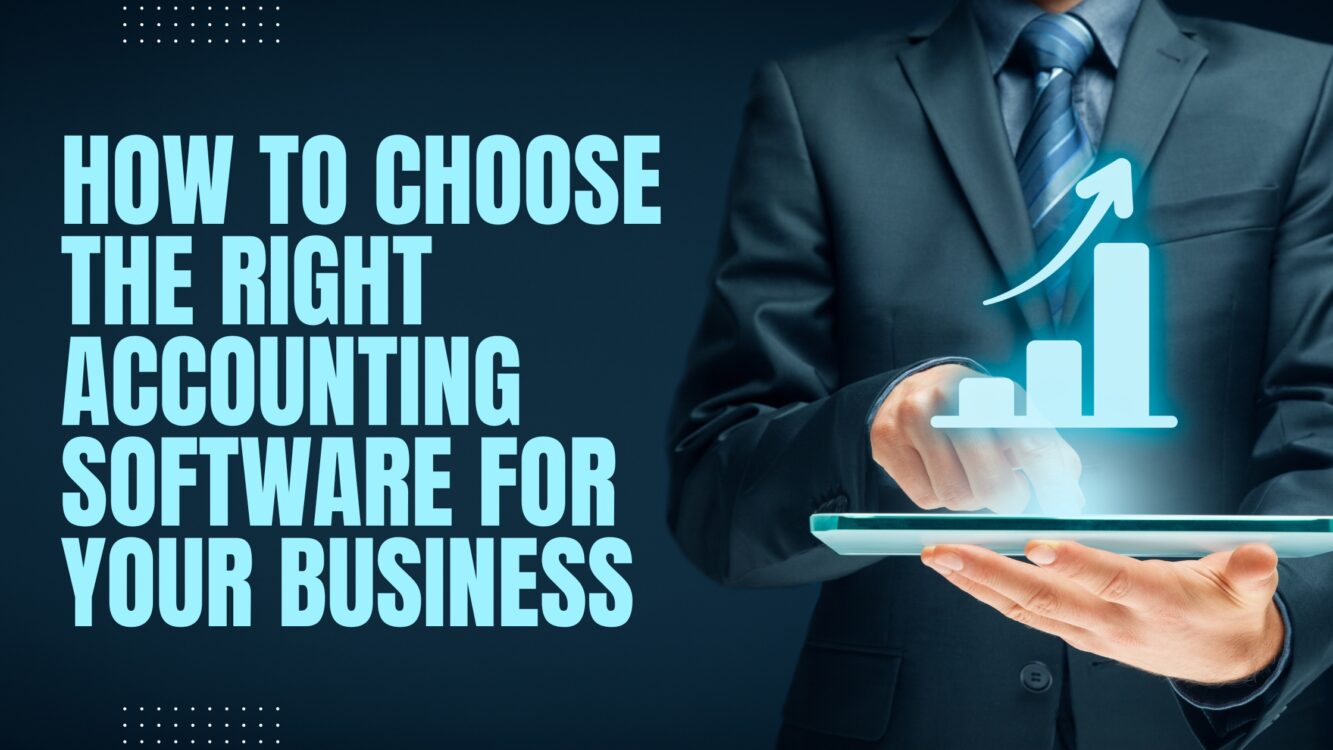
In today’s business world, having the right accounting software is essential for efficiently managing your finances. With so many options available, it can be overwhelming to choose the best one for your business. Whether you’re a small business owner or running a larger company, selecting accounting software that fits your needs can streamline your financial processes, improve accuracy, and save valuable time. In this post, we’ll explore the factors to consider when selecting accounting software, top recommendations, and helpful tips to make an informed decision.
Key Factors to Consider When Choosing Accounting Software
1. Business Size and Needs
The size of your business will impact the features you need. Small businesses may only need basic tools like invoicing and expense tracking, while larger businesses may require advanced functions like payroll processing, inventory management, or financial reporting.
2. User-Friendliness
Choose accounting software that is easy to use, even if you don’t have a background in accounting. A user-friendly interface reduces the learning curve and helps you avoid errors. The software should also offer straightforward navigation and clear instructions.
3. Scalability
As your business grows, your accounting needs will change. Select software that can scale with your business and accommodate new features as required. This helps ensure you don’t need to switch platforms as your needs evolve.
4. Integration Capabilities
Ensure the software integrates with other tools and systems your business uses, such as CRM platforms, payroll services, and e-commerce platforms. Integration minimizes the need for manual data entry, reducing errors and saving time.
5. Security
Security is critical when dealing with sensitive financial data. Look for software that provides encryption, two-factor authentication, and regular data backups to ensure your business’s financial information is protected.
6. Cloud-Based or Desktop Software
Cloud-based software offers the advantage of remote access and automatic updates, while desktop software can provide a more controlled environment for businesses with specific security needs. Consider your business’s security requirements and flexibility needs when making this decision.
Popular Accounting Software to Consider
Here are some widely used accounting software options, suitable for businesses of different sizes:
1. QuickBooks Online
- Best for: Small to medium-sized businesses
- Features: Invoicing, expense tracking, payroll integration, tax preparation, and reporting.
- Why Choose: QuickBooks is user-friendly and integrates with many third-party apps, offering flexible plans that grow with your business.
2. Xero
- Best for: Small to medium-sized businesses, especially those with international clients
- Features: Multi-currency support, invoicing, payroll, bank reconciliation, and financial reporting.
- Why Choose: Xero is a cloud-based platform, ideal for businesses that require access from multiple locations and devices.
3. FreshBooks
- Best for: Service-based businesses and freelancers
- Features: Time tracking, project management, invoicing, and client collaboration.
- Why Choose: Known for its simplicity, FreshBooks is perfect for business owners new to accounting software.
4. Wave
- Best for: Startups and small businesses on a budget
- Features: Free invoicing, accounting, and receipt scanning.
- Why Choose: Wave offers a robust set of free tools, making it ideal for businesses just starting to manage their finances.
5. Zoho Books
- Best for: Small businesses seeking an affordable option
- Features: Invoicing, expense tracking, financial reporting, and GST compliance.
- Why Choose: Zoho Books provides essential accounting features at an affordable price, with strong integrations with other Zoho products.
6. Sage Business Cloud Accounting
- Best for: Growing businesses that need advanced features
- Features: Invoicing, expense tracking, VAT/GST compliance, project management, and reporting.
- Why Choose: Sage is scalable and offers features that cater to more complex accounting needs as your business grows.
Quick Tips for Choosing the Best Accounting Software
- Know Your Needs: Start by listing the specific features you require, such as invoicing, payroll, or inventory management.
- Take Advantage of Free Trials: Most accounting software offers free trials. Use these to test out the interface and ensure the software meets your business requirements.
- Look for Strong Customer Support: Make sure the software provider offers accessible and helpful customer support in case you encounter issues.
- Check for Scalability: Choose software that can grow with your business, so you won’t need to switch platforms as your needs change.
- Read Reviews: User reviews can provide insight into the strengths and weaknesses of the software, helping you make an informed decision.
Frequently Asked Questions (FAQ)
Q1: Do I need accounting software if my business is small?
Yes, accounting software helps streamline bookkeeping, ensures compliance with tax regulations, and provides financial insights that are vital to making informed decisions, even for small businesses.
Q2: Can accounting software automate tax filing?
Many accounting software options offer automated tax calculations and reporting features, though complex tax situations may still require the expertise of an accountant.
Q3: Is cloud-based software better than desktop software?
Cloud-based software is typically preferred due to its accessibility from anywhere and automatic updates. However, businesses with specific data security requirements may opt for desktop software for greater control.
Q4: How secure is my financial data with online accounting software?
Reputable accounting software providers implement strong security measures, including encryption and two-factor authentication, to protect your financial data.
Q5: Can I use accounting software for inventory management?
Some accounting software (such as QuickBooks and Xero) includes inventory management features, but others may require separate tools or integrations for tracking inventory.
Conclusion
Choosing the right accounting software is a key decision for any business, whether you’re just starting out or already established. By considering factors such as your business size, required features, ease of use, and future growth, you can select a solution that will streamline your financial management. Take the time to explore your options, test software with free trials, and ensure that the software you choose fits your needs. With the right accounting tools in place, you can confidently manage your business’s finances and focus on growth.
